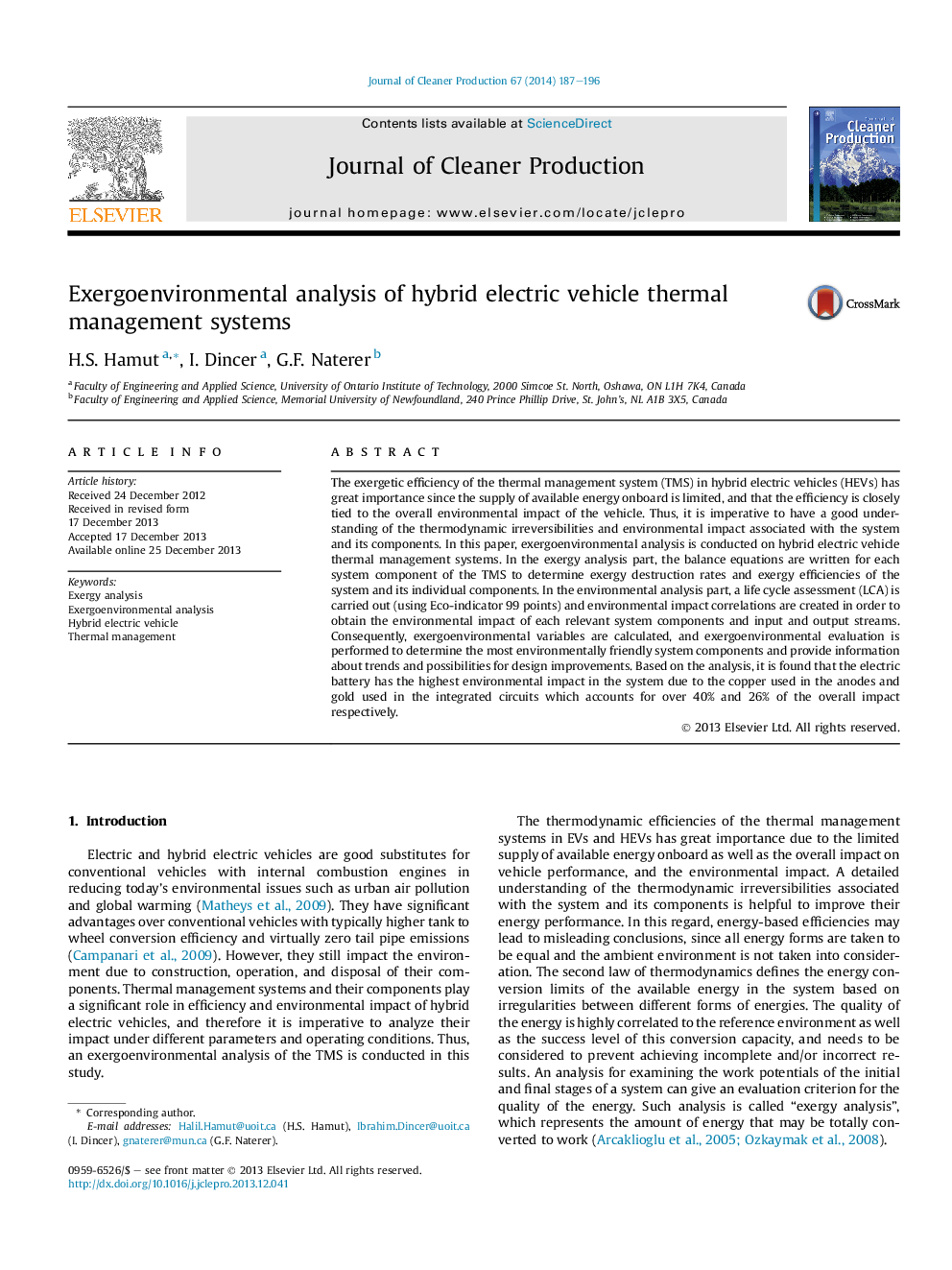| Article ID | Journal | Published Year | Pages | File Type |
|---|---|---|---|---|
| 1744953 | Journal of Cleaner Production | 2014 | 10 Pages |
The exergetic efficiency of the thermal management system (TMS) in hybrid electric vehicles (HEVs) has great importance since the supply of available energy onboard is limited, and that the efficiency is closely tied to the overall environmental impact of the vehicle. Thus, it is imperative to have a good understanding of the thermodynamic irreversibilities and environmental impact associated with the system and its components. In this paper, exergoenvironmental analysis is conducted on hybrid electric vehicle thermal management systems. In the exergy analysis part, the balance equations are written for each system component of the TMS to determine exergy destruction rates and exergy efficiencies of the system and its individual components. In the environmental analysis part, a life cycle assessment (LCA) is carried out (using Eco-indicator 99 points) and environmental impact correlations are created in order to obtain the environmental impact of each relevant system components and input and output streams. Consequently, exergoenvironmental variables are calculated, and exergoenvironmental evaluation is performed to determine the most environmentally friendly system components and provide information about trends and possibilities for design improvements. Based on the analysis, it is found that the electric battery has the highest environmental impact in the system due to the copper used in the anodes and gold used in the integrated circuits which accounts for over 40% and 26% of the overall impact respectively.
